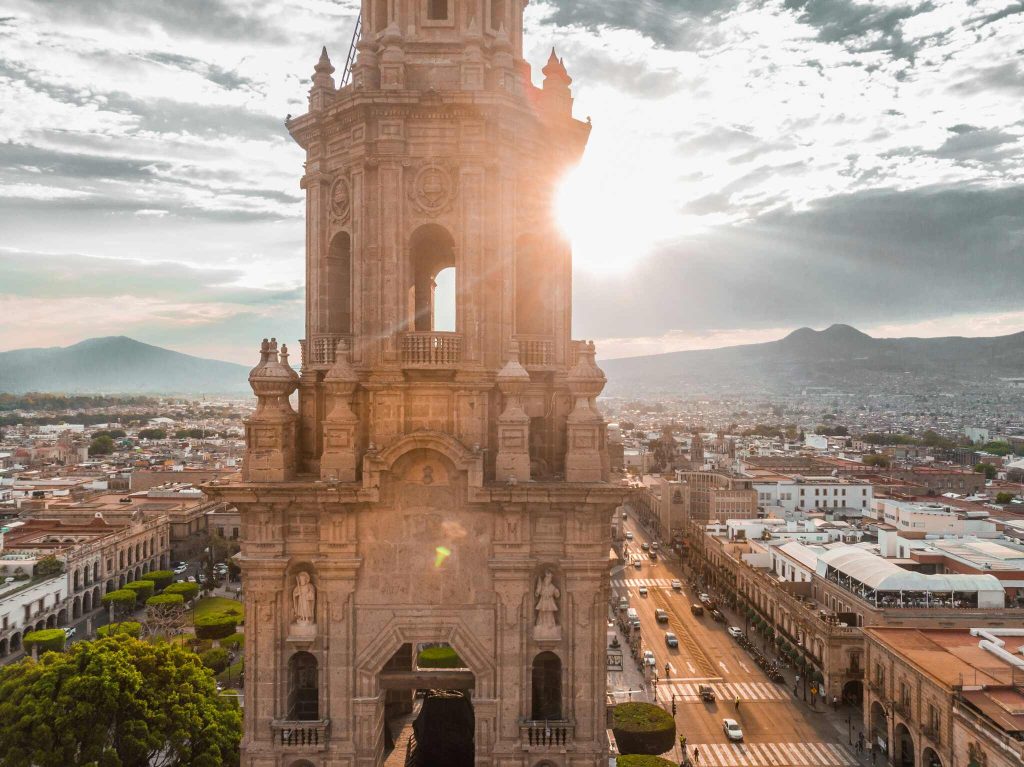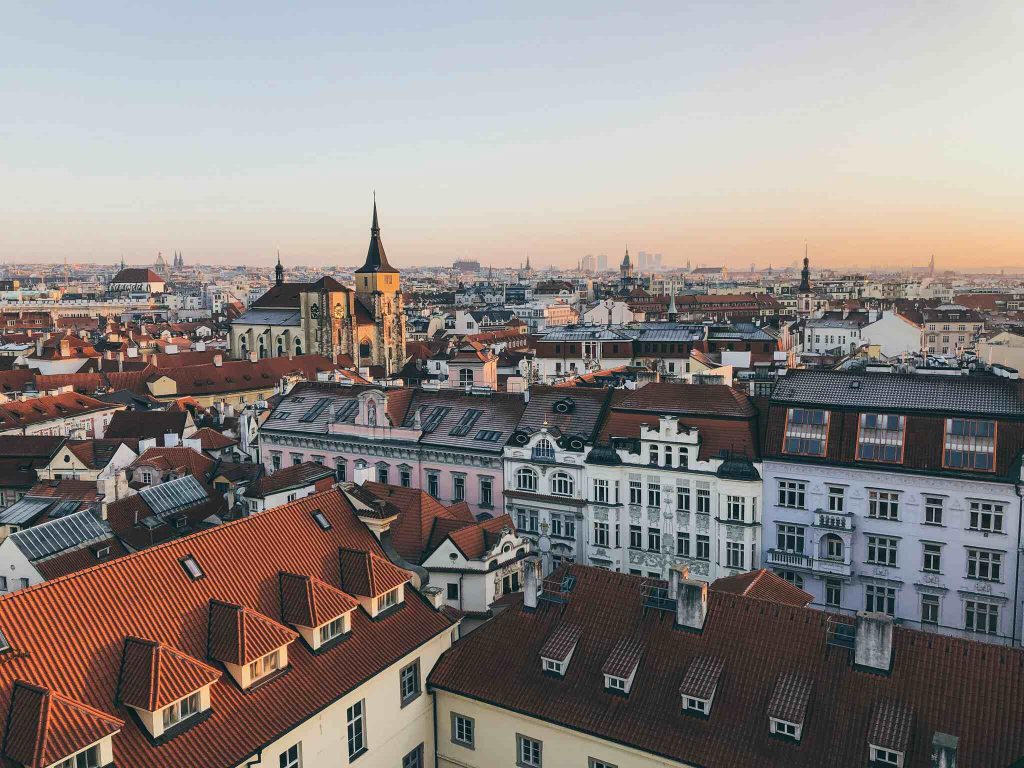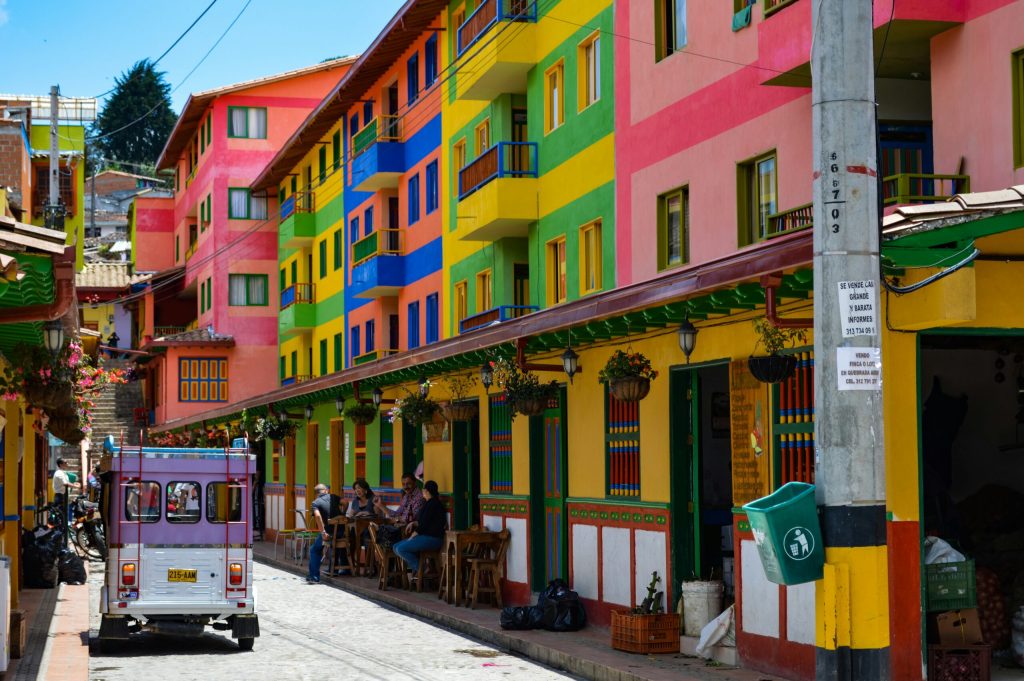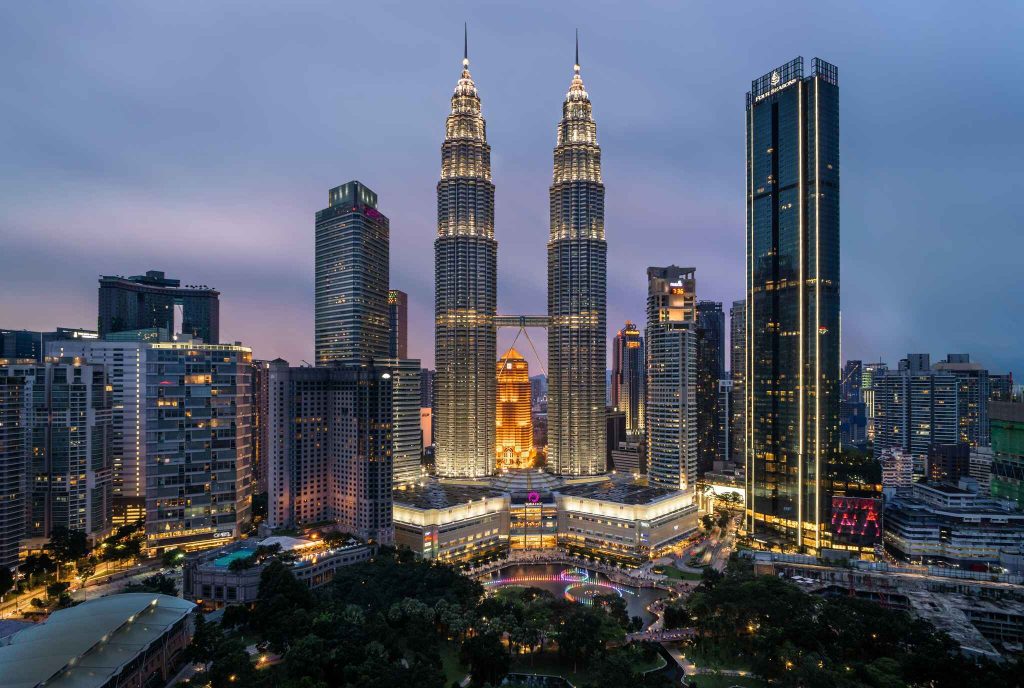Are you searching for the best Digital Nomad friendly countries? Not all places are created equal for remote work. But don’t worry, I’ve got you covered!
Here’s a list of top countries that offer fantastic perks for digital nomads, including special visas, safety, affordability, respect for women’s rights, tolerance, and budget-friendly lodging options.
Let’s dive in!
1. Estonia
Estonia was ahead of the game when it launched its Digital Nomad Visa. This tiny Baltic country is super techy, crazy safe, and loves remote workers.
Tallinn is beautiful but can be pricey—head outside the capital for a more budget-friendly life.
Bonus: Estonia takes equality seriously, so it’s a great place for women nomads, too.
How to Get the Visa
- Work online for a company or clients outside Estonia.
- Make at least $4,850 (€4,500) per month before taxes (for six months before applying).
- Fill out the form online, print it, sign it, and take it to an Estonian Embassy.
- Processing takes about 30 days.
Want all the details? Check out the official site: e-resident.gov.ee

2. Thailand
Thailand has been a digital nomad favorite for years—cheap living, tropical weather, and good vibes. Chiang Mai is a hotspot, but Bangkok, Koh Phangan, and Phuket are also packed with remote workers.
Visa Options for Digital Nomads
- Destination Thailand Visa (DTV) – The New Digital Nomad Visa
- What is it? A visa launched in 2024 for digital nomads, freelancers, and remote workers.
- How long? Up to 180 days per visit (multiple entries) within five years.
- Who can apply? Remote workers, freelancers, and self-employed nomads.
- Bonus: No work permit needed!
- Long-Term Resident (LTR) Visa
- Who’s it for? Digital nomads working for big companies outside Thailand.
- How long? 10 years, with an option to extend.
- Includes: Spouses and kids can apply under the same visa.
- Smart Visa (for highly skilled workers & entrepreneurs)
- Categories:
- Smart T – Tech experts
- Smart I – Investors
- Smart E – Executives
- Smart S – Startup founders
- Perks: No work permit needed, valid for 1 to 4 years.
- Categories:
- Thailand Elite Visa (for those who don’t mind paying for easy living)
- What is it? A privilege visa that lets you stay for 5, 10, or 20 years.
- Perks: VIP airport services, healthcare benefits, easy long-term stays.
- Who’s it for? Those who want hassle-free residency (and don’t mind the price tag).
Want the latest visa details? Check the official site: https://thaievisa.go.th/

3. Portugal
Portugal is a digital nomad’s dream—great weather, rich history, and super friendly locals. Cities like Lisbon and Porto offer a high quality of life without breaking the bank.
Plus, Portugal has rolled out visas to make settling here a breeze.
Visa Options for Digital Nomads
- Digital Nomad Visa (D8 Visa)
- Who’s it for? Remote workers employed by companies outside Portugal or freelancers with international clients.
- Income Requirement: Earn at least $3,800 (€3,480) per month.
- Savings: Have at least $11,400 (€10,440) in your bank account.
- Application Process: Apply at a Portuguese consulate in your home country. You’ll need a valid passport, proof of income, a remote work contract, health insurance, and proof of accommodation in Portugal.
- D7 Visa (Passive Income Visa)
- Who’s it for? Those with passive income like rentals, dividends, or pensions.
- Income Requirement: Have a stable passive income of at least $9,600 (€8,460) per year.
- Application Process: Similar to the D8 Visa, apply at a Portuguese consulate with necessary documents like proof of income, accommodation, and health insurance.
For more detailed info, check out the official ePortugal portal: https://eportugal.gov.pt/en/inicio

4. Mexico
Mexico has everything—big cities, quiet beach towns, mountains, and jungles. It’s no surprise remote workers love it.
Mexico City and Tulum are hotspots with affordable living and a great expat scene.
If you want to stay longer, Mexico’s Temporary Resident Visa makes it easy.
Temporary Resident Visa
- Who’s it for? Remote workers, freelancers, and entrepreneurs who want to stay in Mexico long-term.
- Income Requirement: Earn at least $2,595 USD (€2,400) per month for the past 6 months.
- Savings: Have at least $43,000 USD (€40,000) in your bank account for the past 12 months.
- Property Ownership Alternative: Own a home in Mexico worth at least $346,000 USD (€320,000).
Application Process:
- Book an appointment at a Mexican Embassy or Consulate in your home country.
- Bring a valid passport, proof of income, and a completed visa form.
- If approved, you’ll get a visa sticker in your passport.
- After arriving in Mexico, visit the National Immigration Institute (INM) within 30 days to get your Temporary Resident Card.
For more detailed info, check out the official guide: Mexperience’s Guide to Mexican Visas, Residency, and Immigration

5. Georgia
Georgia is a hidden gem for digital nomads. It’s affordable, safe, and full of history. The capital, Tbilisi, is a mix of old-world charm and modern comforts, making it an easy place to settle.
The best part? Citizens from 95 countries can stay visa-free for up to a year—no paperwork, no hassle.
Visa Options for Digital Nomads
Visa-Free Stay
- Who’s it for? Remote workers, freelancers, and entrepreneurs from 95 eligible countries.
- Duration: Stay up to one year without a visa.
Requirements:
- Valid passport (check that it won’t expire soon).
- Financial stability (while not officially required, you should have enough funds to support yourself).
- Health insurance (not mandatory, but recommended).
Application Process:
- No formal visa application—just show up and enjoy Georgia!
Tax Considerations
- If you stay for more than 183 days in a year, you become a tax resident.
- Georgia has a 1% tax rate for individual entrepreneurs earning under $155,000 USD (€140,000) per year.
For official visa and residency details, check out the e-VISA portal: https://www.evisa.gov.ge/

6. Bali, Indonesia
Bali is a top choice for digital nomads, offering an affordable lifestyle, a supportive community, and peaceful spots away from tourist areas.
The Indonesian government has introduced visa options to make long-term stays easier for remote workers.
Visa Options for Digital Nomads
- Remote Worker Visa (E33G)
- Who’s it for? Remote workers employed by companies outside Indonesia.
- Duration: Valid for 1 year and can be renewed.
- Requirements:
- Valid passport with at least 18 months validity.
- Proof of employment from a foreign company.
- Minimum annual income of $60,000 USD (€55,000).
- Bank balance of at least $2,000 USD (€1,850) for the past three months.
- Proof of accommodation in Indonesia.
- Application Process:
- Gather required documents.
- Apply through the Indonesian immigration website or at an Indonesian embassy or consulate.
- Wait for approval before traveling to Indonesia.
- C-Type Visa 211A
- Who’s it for? Digital nomads and remote workers planning to stay in Indonesia for up to 6 months.
- Duration: Initial validity of 60 days, extendable twice for 60 days each, totaling 180 days.
- Requirements:
- Valid passport with at least 12 months validity.
- Proof of funds with a minimum of $2,000 USD (€1,850).
- Proof of onward travel.
- Recent color passport photo.
- Application Process:
- Apply from outside Indonesia through a visa agent or at an Indonesian embassy or consulate.
- Processing time is typically 7-14 days.
- Once approved, you have 90 days to enter Indonesia.
Find more information here: https://molina.imigrasi.go.id/

7. Czech Republic
The Czech Republic, especially its charming capital Prague, is a favorite among digital nomads. The country offers a Long-Term Business Visa, commonly known as the Zivno Visa, tailored for freelancers and remote workers.
Prague boasts affordable living, rich culture, and a vibrant international community. Plus, its central location in Europe is perfect for those eager to explore the continent.
Visa Options for Digital Nomads
Zivno Visa (Long-Term Business Visa)
- Who’s it for? Freelancers and self-employed individuals aiming to work in the Czech Republic.
- Duration: Valid for up to one year, with the possibility of renewal.
- Requirements:
- Valid Passport:
Ensure it’s valid for at least 1.5 years and has two blank pages. - Proof of Accommodation:
A lease agreement or a document signed by the property owner confirming your stay. - Proof of Funds:
Bank statement showing at least 124,500 CZK (~$5,644 USD). - Trade License (Živnostenský list):
A license permitting you to operate as a freelancer in the Czech Republic. - Criminal Background Check:
An apostilled or certified document from your home country. - Health Insurance:
Proof of medical coverage valid in the Czech Republic. - Application Form:
Completed and translated into Czech.
- Valid Passport:
- Application Process:
- Obtain a Trade License:
Gather necessary documents, including your passport, criminal background check, and proof of accommodation. Submit these to the Trade License Office in the Czech Republic. - Schedule an Appointment:
Contact a Czech embassy or consulate to set up a visa application appointment. - Attend the Appointment:
Submit your application form, supporting documents, and undergo an interview. - Await Decision:
Processing can take up to 90-120 days. - Post-Approval:
Upon arrival in the Czech Republic, register with the Foreign Police within three days and obtain your official Trade License.
- Obtain a Trade License:
For more details, visit SchengenVisaInfo: https://www.schengenvisainfo.com/czechia/visa/

8. Spain
Spain has it all—sunshine, history, beaches, and tapas. Whether you love the energy of Barcelona and Madrid or prefer the laid-back vibe of Granada and Seville, there’s a spot for every nomad.
Spain’s Digital Nomad Visa makes it easier for non-EU remote workers to live and work legally while enjoying the country’s amazing lifestyle.
Visa Options for Digital Nomads
Digital Nomad Visa
- Who’s it for? Remote workers and freelancers with clients or emplo yers outside Spain.
- Duration: Valid for one year, renewable for up to five years.
- Income Requirement: Earn at least $2,530 USD (€2,160) per month.
- Savings Requirement: Have at least $30,000 USD (€25,920) in your bank account.
Application Process:
- Apply at a Spanish consulate in your home country or from within Spain on a tourist visa.
- Submit proof of income, a remote work contract, and private health insurance.
- Wait for approval (processing takes 20-45 days).
Find all detailed info here: https://www.exteriores.gob.es/Consulados/londres/en/ServiciosConsulares/Paginas/Consular/Digital-Nomad-Visa.aspx

9. Colombia
Colombia has transformed into a favorite spot for digital nomads, with cities like Medellín—known for its “Eternal Spring” climate—leading the way.
The country offers a low cost of living, vibrant culture, and improving safety and digital infrastructure.
Visa Options for Digital Nomads
Digital Nomad Visa (Visa V Nómadas Digitales)
- Who’s it for? Remote workers employed by foreign companies or freelancers with international clients.
- Duration: Valid for up to two years.
- Income Requirement: Minimum monthly income of COP 3,900,000 (approximately $994 USD).
- Application Process:
- Gather Documents:
- Valid passport (minimum 6 months validity).
- Employment letter from a foreign company or proof of freelance work.
- Bank statements from the last three months showing the required income.
- Health insurance covering your stay in Colombia.
- Passport-sized photo.
- Apply Online:
- Submit your application through the official Colombian visa application website.
- Processing Time:
- Typically up to 30 days.
- Gather Documents:
For comprehensive details and application procedures, visit the official Colombian visa website: https://www.cancilleria.gov.co/Cancillería de Colombia

10. Malaysia
Malaysia is a fantastic spot for digital nomads, offering a low cost of living, diverse culture, and warm climate.
The Malaysia My Second Home (MM2H) program provides a long-term visa option for those looking to base themselves in Southeast Asia.
Visa Options for Digital Nomads
Malaysia My Second Home (MM2H) Program
- Who’s it for? Foreign nationals seeking long-term residence in Malaysia.
- Duration: Offers a 10-year multiple-entry visa, renewable upon meeting specific criteria.
- Financial Requirements:
- Age Below 50:
- Proof of Liquid Assets:
Minimum of RM 500,000 (~$106,000 USD). - Monthly Offshore Income:
At least RM 40,000 (~$8,500 USD). - Fixed Deposit:
After approval, a fixed deposit of RM 300,000 (~$64,000 USD) in a Malaysian bank is required.
- Proof of Liquid Assets:
- Age 50 and Above:
- Proof of Liquid Assets:
Minimum of RM 350,000 (~$74,000 USD). - Monthly Offshore Income:
At least RM 10,000 (~$2,100 USD) from government pensions or other sources. - Fixed Deposit:
After approval, a fixed deposit of RM 150,000 (~$32,000 USD) in a Malaysian bank is required.
- Proof of Liquid Assets:
- Age Below 50:
- Additional Requirements:
- Medical Report:
A medical examination from a private hospital or clinic in Malaysia. - Health Insurance:
Valid medical insurance applicable in Malaysia. - Good Conduct Certificate:
A police clearance from your country of origin.
- Medical Report:
- Application Process:
- Prepare Documentation:
Gather all necessary documents, including financial statements, medical reports, and personal identification. - Submit Application:
Applications must be submitted through licensed MM2H agents. - Await Conditional Approval:
Processing time varies; upon approval, proceed with the fixed deposit placement. - Finalize Visa Endorsement:
After fulfilling all requirements, the MM2H visa will be endorsed in your passport.
- Prepare Documentation:
For detailed information and to apply, visit the official MM2H website: https://www.imi.gov.my/index.php/en/main-services/malaysia-my-second-home-mmh2-en/

👉 You might also like:
– The 15 Best Digital Nomad Family Destinations
– Costa Rica Digital Nomad Visa
– Digital Nomad Visa Japan
– Malta Digital Nomad Visa
– Greece Digital Nomad Visa
Why are these the most Digital Nomad friendly countries?
These places aren’t just randomly popular—they work for digital nomads. Governments are rolling out Digital Nomad Visas, and the mix of great weather, low costs, and vibrant culture makes them even more appealing.
Where is your next Digital Nomad destination? Please let me know in the comments!
Thank you for reading and for making me part of your day! Yours, Lulu
FAQ on the Top Digital Nomad Friendly Countries
What are the key benefits of digital nomad visas?
Digital nomad visas allow remote workers to enjoy longer stays, access to modern amenities, and a legal way to work in a different country. Other benefits include:
- Potential to transition to permanent residency in certain countries
- Affordable cost of living in many destinations
- Access to high-speed internet and good internet connectivity
- A unique opportunity to experience local culture and natural beauty
- Some visas allow family members to join
What are the typical requirements for a digital nomad visa?
Each country has specific requirements, but most digital nomad visa countries require:
- Application fees and visa processing
- Proof of remote employment or self-employment
- Minimum income requirements (varies by country)
- A clean criminal record
- Travel insurance covering your stay
- A valid internet connection and a stable remote income
What are the most affordable digital nomad destinations?
Many digital nomads look for places with an affordable cost of living while still enjoying a pleasant climate and modern amenities. Some of the most budget-friendly options include:
- Georgia – Low taxes, cheap one-bedroom apartments, and visa-free stays
- Playa del Carmen, Mexico – Great beaches, low rent, and strong expat community
- Cabo Verde – An island country with a tropical climate and low crime rates
- Sri Lanka – A beautiful country with natural beauty and an affordable lifestyle
Can I get permanent residency through a digital nomad visa?
Most digital nomad visas are temporary, but some countries offer a temporary residence permit that can lead to permanent residence. For example:
- Costa Rica’s Rentista Visa offers an option for permanent residency after three years.
- Portugal’s D7 and D8 visas allow a path to permanent residency after five years.
- Mexico’s Temporary Resident Visa can be converted into a permanent residency after four years.
Do I need a business license or local tax registration?
Some digital nomad visa programs require self-employed people or business owners to register their businesses locally. For example, the Czech Republic’s Zivno Visa requires freelancers to obtain a trade license. In other cases, such as Georgia’s 1% tax program, digital nomads can benefit from low tax rates.
What is the number of digital nomads worldwide?
In recent years, the number of digital nomads has increased dramatically. Reports suggest that there are now over 35 million digital nomads worldwide, with the United States having the largest percentage. Many of these nomads move between different countries to explore new opportunities while maintaining their remote work lifestyle.






